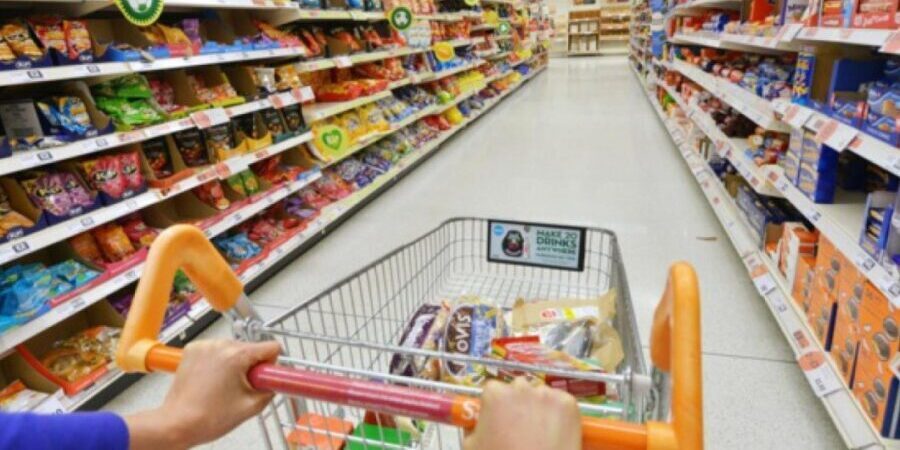After last week, the food basket of basic products declined by 0.08% in price, and this week there was a decline again … just as it is. According to the latest analysis by Deco / Proteste, the food basket costs € 222.62 this week, again a decrease of € 0.17 compared to the previous one, when a week has passed since the zero value-added tax measure was applied to some products (before that, it recorded a decrease of almost € 3.5 ).
Thus, compared to the same basket purchased before the war in Ukraine (on February 23, 2022), the price has increased by €38.99 (21.23%).
Since the beginning of the year, even with the inflation rate slowing down, the basket has already increased by 3.21 euros (1.46% more), and by comparing this week’s value with the same basket bought a year ago, the increase is 16.63 euros, or 8.07% more.
The Consumer Protection Association monitors the prices of a basket of 63 basic food products each week, which includes goods such as turkey, chicken, hake, mackerel, onions, potatoes, carrots, bananas, apples, oranges, rice, pasta and sugar. Ham, milk, cheese and butter.
Last week, the 10 products with the largest price increases were roasted ground coffee (16%), strawberry liquid yogurt (10%), broccoli and cereal (9%), cereal flakes and cooked cereal (8%), and 100% . Vegetable oil for cooking (7%), horse mackerel, bread without crust and black sheath fish (6%).
The 10 products that have seen their prices rise the most since the beginning of the war in Ukraine, i.e. since February 24, 2022, were Carolino rice (89%), onions (73%), tomato pulp (61%), carrots. (61%), cereal flakes (60%), salmon (59%), white sugar (52%), heart cabbage (47%), mackerel (46%) and fresh hake (46%).
The largest rise in prices, since the beginning of the war in Ukraine to date, was recorded in the categories of groceries (26.94%, over €11.35) and fish (25.10%, up €15.14).
A basket without VAT goes down 80 cents
Deco/Proteste is also analyzing a further basket of 41 products to which the government’s zero value-added tax metric applies, to monitor price changes for these goods.
Compared to the previous week, the ten products without VAT increased the most were: liquid yoghurt (10%), broccoli (9%), cooking oil (7%), mackerel, bread without crust, tuna in vegetable oil and Red potatoes (6%), turkey leg and Carolino rice (5%) and sliced canned Flemish cheese (4%).
Since the entry into force of the zero value-added tax measure (April 18), and when comparing prices on the eve of the measure applied, it appears that the following products experienced the highest price discrepancies: liquid yogurt (12%), tuna dipped in vegetable oil (5%), spiral pasta (4%) %), bread without crust (3%), broccoli (-1%), Carolino rice (-1%), golden apple (-2%), butter with salt (-3%), whole chicken (-3%) and sliced Flemish cheese (-3%).
The association explains that this increase is due to the fact that Portugal “relies heavily on foreign markets to ensure the supply of cereals necessary for internal consumption”, which “currently represent only 3.5% of national agricultural production: mainly maize (56%), wheat (19%) and rice (16%).
“And if in the early 1990s grain self-sufficiency was about 50%, the value currently does not exceed 19.4%, which is one of the lowest percentages in the world, which obliges the country to import about 80% of the grain it consumes,” adds Dicko.
The organization explains that “the Russian invasion of Ukraine, from which a large part of the grain consumed in the European Union and Portugal comes from, and therefore, puts more pressure on a sector grappling with the consequences of the epidemic and drought that has a strong impact on production and stock creation.”
“The reduction in the supply of raw materials and the increase in production costs, that is, the energy required for agro-food production, may therefore be reflected in an increase in prices on international markets, and thus in prices at the consumer,” he affirms.

“Wannabe internet buff. Future teen idol. Hardcore zombie guru. Gamer. Avid creator. Entrepreneur. Bacon ninja.”

